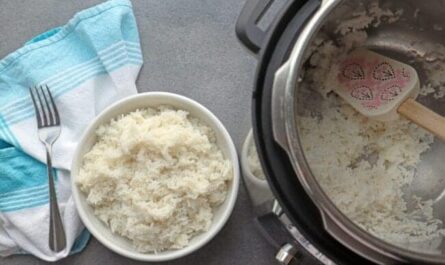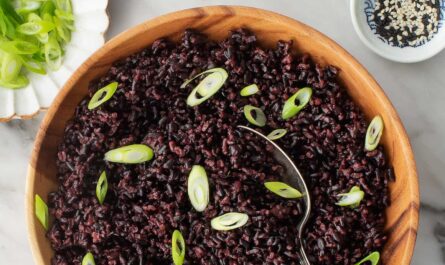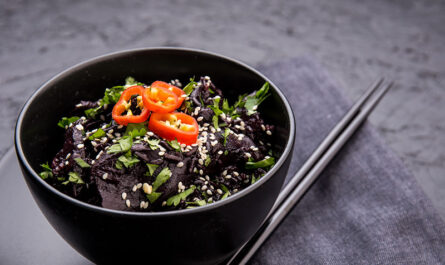For sushi enthusiasts, the quest for the perfect roll doesn’t just end at taste. The nutritional value of the ingredients is equally important. Enter black rice phytochemicals, a powerhouse of health benefits that can elevate your sushi experience. This article will delve into the world of black rice and its remarkable phytochemicals, ensuring you enjoy not only delicious but also nutritious sushi.

What Are Phytochemicals?
Phytochemicals are natural compounds found in plants that have been shown to provide various health benefits. They are responsible for the colors, flavors, and disease resistance of plants. In black rice, these compounds are abundant and contribute significantly to its health-enhancing properties.
Understanding Black Rice
Black rice, often referred to as ‘forbidden rice’, is a type of rice that is rich in antioxidants and nutrients. Its dark color is a result of high anthocyanin content, a type of antioxidant known for its potential health benefits.
Historical Significance
Historically, black rice was reserved for Chinese royalty due to its rarity and nutritional value. Today, it is enjoyed worldwide for its unique taste and health benefits.
Nutritional Profile
Black rice is rich in protein, fiber, and iron, making it an excellent choice for a balanced diet. It also contains essential vitamins and minerals that support overall health.
Key Phytochemicals in Black Rice
The primary black rice phytochemicals include anthocyanins, flavonoids, and phenolic acids. These compounds are linked to numerous health benefits, including reduced inflammation and improved heart health.
Anthocyanins
Anthocyanins are pigments that give black rice its distinctive color. They are known for their antioxidant properties, which help protect the body from oxidative stress.
Flavonoids
Flavonoids in black rice contribute to its anti-inflammatory and anticancer effects. They are also known to support cardiovascular health.
Phenolic Acids
These acids are powerful antioxidants that can help prevent chronic diseases and promote overall health.
Health Benefits for Sushi Lovers
Incorporating black rice into sushi can enhance its nutritional value significantly. Here are some benefits sushi lovers can enjoy:
Boosted Antioxidant Intake
Black rice contains more antioxidants than other rice varieties, providing a powerful defense against free radicals.
For more on black rice and digestion, visit our digestion page.
Improved Heart Health
The phytochemicals in black rice can help reduce cholesterol levels and improve heart function.
Enhanced Weight Management
Rich in fiber, black rice can help with weight management by promoting a feeling of fullness.
Better Blood Sugar Control
Black rice has a low glycemic index, making it a good choice for maintaining stable blood sugar levels.
Incorporating Black Rice into Your Sushi
To make the most of these benefits, consider swapping white rice for black rice in your sushi recipes.
Recipe Ideas
Try using black rice in your next sushi roll for a nutritious twist. Its nutty flavor pairs well with various fillings.
Cooking Tips
Cooking black rice is simple. Rinse the rice, then cook it in a rice cooker or on the stove until tender.
Potential Allergies and Precautions
While black rice is generally safe, it’s essential to be aware of potential allergies. For more on this, visit our allergy page.
Conclusion
Integrating black rice phytochemicals into your sushi can significantly boost its health benefits. Whether you’re a seasoned sushi lover or a curious newcomer, black rice offers a delicious and nutritious addition to your meals. For further reading on healthy rice choices, check out Healthline’s article on the healthiest rice.

FAQs
What makes black rice different from white rice?
Black rice is richer in antioxidants and nutrients compared to white rice, making it a healthier choice.
Can I eat black rice raw?
It’s not recommended to eat black rice raw. For more information, visit our raw rice page.
How should black rice be stored?
Store black rice in a cool, dry place in an airtight container to maintain its freshness.
This article contains affiliate links. We may earn a commission at no extra cost to you.




